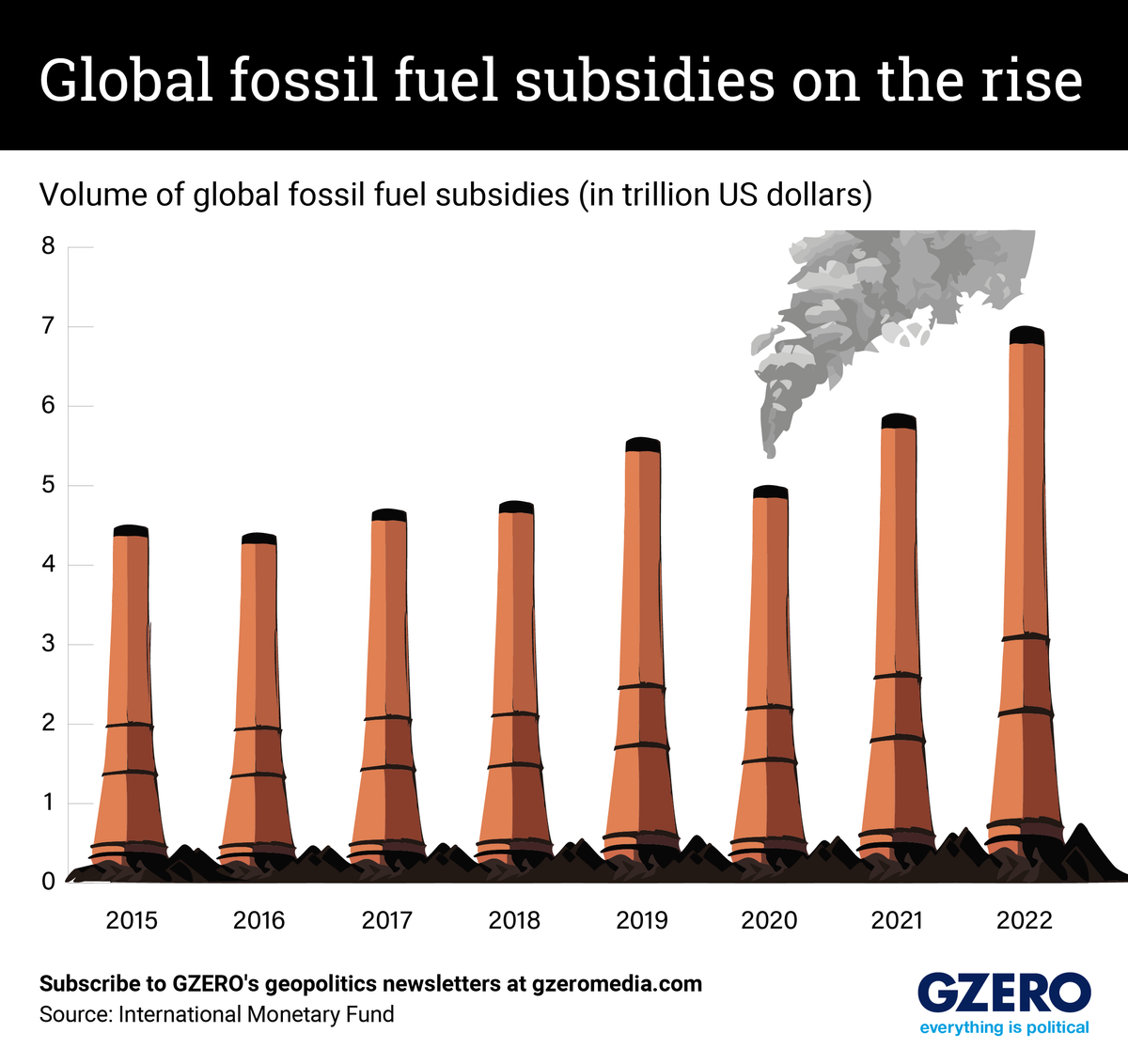Fresh out of Barnard College with a degree in political science, Riley is a writer and reporter for GZERO. When she isn’t writing about global politics, you can find her making GZERO’s crossword puzzles, conducting research on American politics, or persisting in her lifelong quest to learn French. Riley spends her time outside of work grilling, dancing, and wearing many hats (both literally and figuratively).
In 2022, the International Monetary Fund crunched the numbers and found that governments were spending a whopping $7 trillion on fossil fuel subsidies. The colossal sum spent on these grants and tax incentives was largely driven by the war in Ukraine and its ripple effect on energy prices. But it wasn’t an outlier; the trend had already been on an upward trajectory as economies surged in the Global South, which suggests it is likely to continue unless there is a global transition to green energy.
To put these numbers into perspective, government backing for fossil fuels represents over 7% of the world's GDP, dwarfing other crucial budget items like education spending, which amounts to a mere 4.3% of the global GDP.
According to the IMF, curbing these subsidies could not only realign humanity with climate goals but also save 1.6 million lives annually and boost government coffers by $4.4 trillion.






